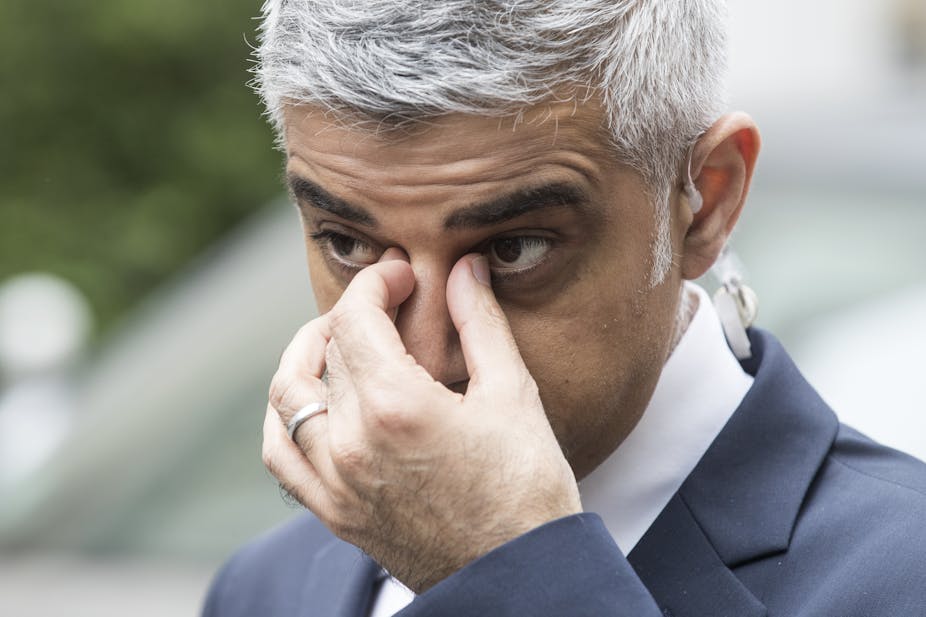With one swift blow, London Mayor Sadiq Khan confounded plans to construct a leafy walkway above the River Thames. By refusing to guarantee further public funds, the mayor leaves the Garden Bridge project with a funding gap of some £70m, and a countdown of just eight months until planning permission expires.
The Thames Garden Bridge project has already used £37.4m of public money, and the government’s agreement to underwrite cancellation costs could bring the taxpayers’ bill up to £46.4m. But while these are staggering sums, they are small compared with the risks – and the losses – which could have been incurred had Khan not pulled the public purse strings tightly shut. In doing so, the mayor drew a line under a saga which has given rise to series of allegations of imperfect processes and conflicts of interest, which risked soiling the integrity of the public service.
The project was first conceived by British actor Joanna Lumley who – together with product designer Thomas Heatherwick – sought support from her friend and then-mayor Boris Johnson, in May 2012. Initially, the project was to be privately funded, with the design and location to be developed over the months to February 2013 with engineering firm Arup. When fundraising efforts failed to procure financial support, Johnson made a commitment to kickstart the project with public money.
Not your typical public tender
It was not until much later that it was officially recorded that the board of Transport for London (TfL) - the statutory corporation responsible for London’s transport network – was made aware of the full cost, scope, risk or remit of this proposal. There had been no real business case made, no policy need identified and no groundswell of public support for any such proposal. Nevertheless, the project was ostensibly put out to public tender in February 2013.
Although the procurement had only invited parties to analyse, appraise and consult on a need and location for a pedestrian and cycle crossing, the submission from Heatherwick Studios provided a polished vision of the Garden Bridge and its location, primed for public consumption. Heatherwick’s team won the bid, under the authority of then-TfL director of planning Richard de Cani. In a theatre of revolving doors, he subsequently resigned and was later appointed by Arup. TfL and the Department for Transport denied suggestions that de Cani had a conflict of interest.

The business case was eventually completed in May 2014 – long after the project went to public consultation in November 2013 and appeared, with Treasury support, in the December 2013 National Infrastructure Plan. In a clear departure from accepted protocols, central government, by using Ministerial Directions, and TfL agreed to fund the project, to the tune of £30m each, on the understanding that forthcoming private donations would make up the shortfall. A charity called the Garden Bridge Trust was established to oversee the project’s execution.
Ballooning costs
By mid-2014, the project’s costs had escalated from £60m to £175m – over seven times the cost of the £24m Millennium Footbridge, which links St Paul’s Cathedral to the South Bank. Questions and concerns were repeatedly raised by London Assembly Member Caroline Pidgeon, Will Hurst of The Architects’ Journal and myself from Project Compass CIC (a procurement intelligence service). These, alongside community opposition from Thames Central Open Space, protests by London artist Will Jennings and critiques of the business case by Dan Anderson of Fourth Street Studios were repeatedly dismissed by the mayor.
Finally, following a request for an internal TfL audit, the Greater London Assembly (GLA) oversight committee took evidence. This clarified the many inappropriate issues with the procedures and procurement process, and resulted in a cascade of revelations, leading to the most recent inquiry. Commissioned by current mayor Khan and undertaken by MP Margaret Hodge. The vanity project was roundly condemned on all fronts, and the mayor called upon to cancel any further support.
What started life as a project costing an estimated £60m is now projected to cost over £200m. The Garden Bridge Trust only secured £69m in private funding pledges, leaving the gap of at least £70m. No new pledges had been obtained since August 2016. Now, with Khan’s announcement, it is to be hoped that this shocking waste of public money will come to an end. The allegations which have dogged the project must now be investigated and brought to account, so that trust in public service may be restored once more.

